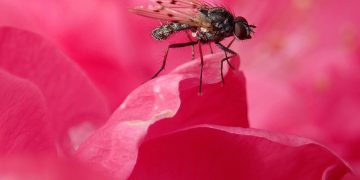[ad_1]
Growing Greener: Sustainable Gardening Tips for a Healthier Planet
Gardening is a beloved pastime for many, providing a sense of tranquility and satisfaction as we nurture plants and watch them thrive. However, traditional gardening practices can have a negative impact on the environment, from excessive water consumption to the use of harmful chemicals. In recent years, there has been a growing interest in sustainable gardening, which focuses on minimizing our ecological footprint and promoting a healthier planet. In this article, we will explore some tips for sustainable gardening that can help you grow greener while protecting the environment.
Choose Native Plants
One of the most important aspects of sustainable gardening is choosing native plants. Native plants are well-suited to the local climate and soil conditions, requiring less water, fertilizer, and pesticides to thrive. By planting native species in your garden, you can create a more resilient ecosystem that supports local wildlife and reduces the need for maintenance.
Conserve Water
Water conservation is a key component of sustainable gardening. To reduce water usage in your garden, consider installing a rain barrel to collect rainwater for irrigation. You can also mulch your garden beds to retain moisture and reduce evaporation. Additionally, watering your plants early in the morning or late in the evening can help minimize water loss due to evaporation.
Compost Organic Waste
Composting is an excellent way to reduce waste and nourish your garden. By composting organic waste such as fruit and vegetable scraps, yard trimmings, and coffee grounds, you can create nutrient-rich soil that promotes healthy plant growth. Composting also helps reduce greenhouse gas emissions by diverting organic waste from landfills.
Avoid Chemical Pesticides and Fertilizers
Chemical pesticides and fertilizers can have harmful effects on the environment, contaminating soil and water sources and harming beneficial insects and wildlife. Instead of relying on chemical products, consider using natural alternatives such as neem oil, diatomaceous earth, or companion planting to control pests and improve soil fertility. Organic fertilizers such as compost and manure are also effective and environmentally friendly options.
Attract Beneficial Insects
Beneficial insects play a crucial role in maintaining a healthy garden ecosystem by pollinating plants and controlling pest populations. To attract beneficial insects to your garden, plant a variety of flowering plants that provide nectar and pollen. You can also create habitats such as insect hotels and bee houses to provide shelter for beneficial insects.
Practice Integrated Pest Management
Integrated Pest Management (IPM) is a sustainable approach to pest control that focuses on preventing pest problems before they occur. By monitoring your garden regularly, identifying pest issues early, and using a combination of cultural, biological, and mechanical control methods, you can effectively manage pests while minimizing the use of chemical pesticides.
Support Local Wildlife
Creating a wildlife-friendly garden is another way to promote sustainability and biodiversity. By providing food, water, shelter, and nesting sites for birds, bees, butterflies, and other wildlife, you can help support local ecosystems and create a more vibrant and dynamic garden. Consider planting native flowers, shrubs, and trees that attract pollinators and other beneficial wildlife.
Reduce Lawn Area
Lawns require a significant amount of water, fertilizer, and maintenance to keep them looking lush and green. To reduce the environmental impact of your garden, consider reducing the size of your lawn and replacing it with native plants, vegetable beds, or a rain garden. Not only will this help conserve resources, but it will also create a more diverse and sustainable garden.
Use Sustainable Garden Products
When shopping for garden products such as tools, pots, and soil amendments, look for sustainable options that are made from recycled materials, biodegradable, or locally sourced. Reusable garden tools and containers can help reduce waste, while organic and eco-friendly soil amendments can enrich your soil without harming the environment.
Conclusion
By following these sustainable gardening tips, you can create a greener and healthier garden that benefits both you and the planet. From choosing native plants and conserving water to composting organic waste and supporting local wildlife, there are many ways to minimize your environmental impact and promote sustainability in your garden. By making small changes to your gardening practices, you can make a big difference in the health of our planet and future generations to come.
So, start growing greener today and join the movement towards sustainable gardening for a healthier planet!
[ad_2]
































